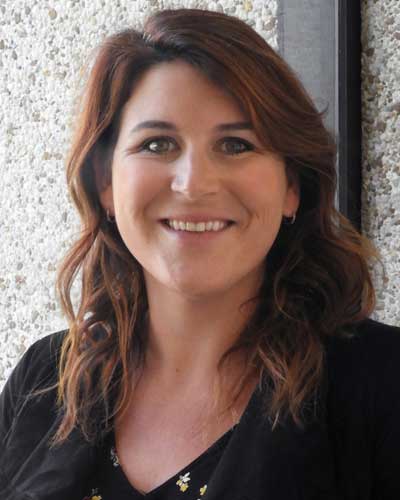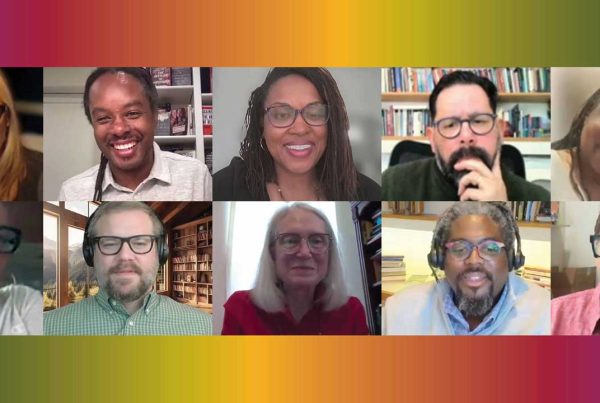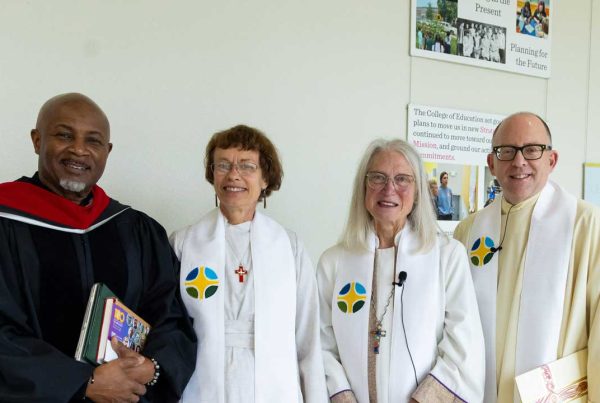After 18 months of dedicated work and engagement with a wide range of stake-holders in the CTS community—faculty, staff, students, alumni, clergy, lay leaders, and community partners—the Board of Trustees voted in April 2021 to approve a new strategic plan for the seminary. The ambitious plan, entitled “CTS 2030: Project Transformation,” charts the next decade of the seminary’s future.
Under the leadership of President Mellott and Trustee Jo Taylor, the seminary assembled a Core Team to develop the strategic plan, which was guided by the question, “What is God inviting us to consider?” Comprised of members from the seminary’s executive leadership, faculty, alumni, and trustees, the Core Team engaged in a months-long process of inquiry, listening, reflection, discernment, and dialogue.
To help guide it through the plan’s development, CTS engaged experts in strategic planning like Diane Thompson and Michelle Hummel. Thompson brought extensive Strategic Planning experience to the team after having worked for many years in corporate strategy at Lilly and is now retired.
 Hummel, who earned a BS and an MBA from Purdue University and has worked with local organizations like the Indiana Women’s Prison and the Marion County Health Department, recently joined the CTS staff as its Institutional Strategist to support stakeholders and facilitate the success of the seminary’s strategic plan. She said that her new role at CTS involves “helping to bring the strategic goals to life and ensure action steps are taken to achieve these realistic yet visionary goals.”
Hummel, who earned a BS and an MBA from Purdue University and has worked with local organizations like the Indiana Women’s Prison and the Marion County Health Department, recently joined the CTS staff as its Institutional Strategist to support stakeholders and facilitate the success of the seminary’s strategic plan. She said that her new role at CTS involves “helping to bring the strategic goals to life and ensure action steps are taken to achieve these realistic yet visionary goals.”
Quickly settling in to her new role, Hummel provided a window into the planning process. She explained, “The Core Team’s discernment process included engagement with a broad range of invested and knowledgeable individuals—including thought leaders in theological education, alumni, and community leaders in Indianapolis. In total, over four hundred stakeholders provided input.”
Hummel pointed out that at the foundation of the strategic plan are the historic mission and core values of CTS. As an expression of these, the plan commits CTS to a ten-year process “To be an academic learning community that gives witness to God’s liberative, restorative, and life-affirming message.”
Project Transformation highlights CTS’s role as a place of scholarship and spiritual formation, the central role of the church in impacting community and public life, and the seminary’s foremost task of preparing students for real world and community leadership. The plan is therefore an expression of CTS’s commitment to serve the public through serving the church.
Crafting the plan involved identifying specific goals and competencies that reference meaningful and measurable institutional capacity building. The plan identifies five competencies to orient the seminary’s future plans and evolution: Learner Centeredness, Racial Equity, Interfaith Collaboration, Reimagined Relationships, and Technological Mindfulness.
In the near term, the strategic plan identifies four goals to accomplish in the next three years: 1.) Increase enrollment, 2.) Establish justice resources for the church, 3.) Provide a lifelong learning approach to educate church and community leaders, and 4.) Establish excellence in institutional infrastructure.
“The process of developing and implementing a strategic plan is a crucial moment in the history of any institution,” Hummel said. “Project Transformation is an exciting plan that offers a bold vision to establish CTS as a leading institution of theological education and community leadership for years to come.”
Learn more about CTS’s new strategic plan here.






